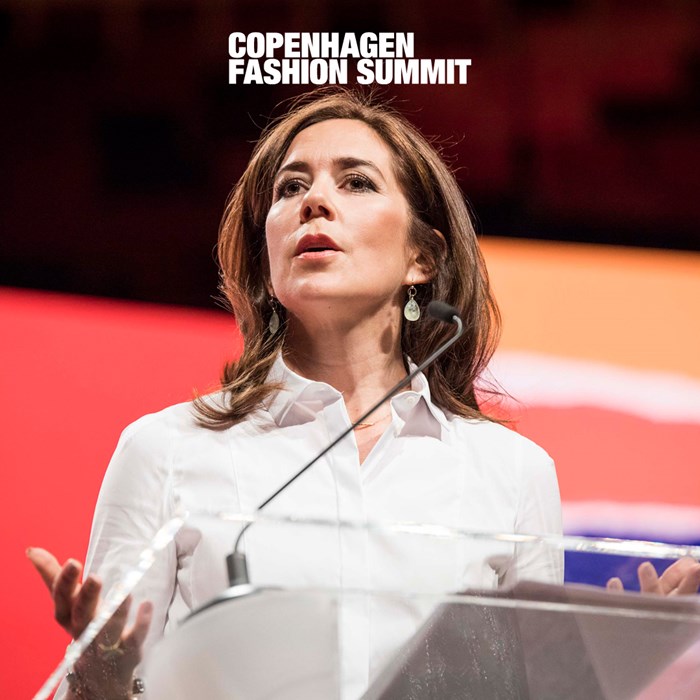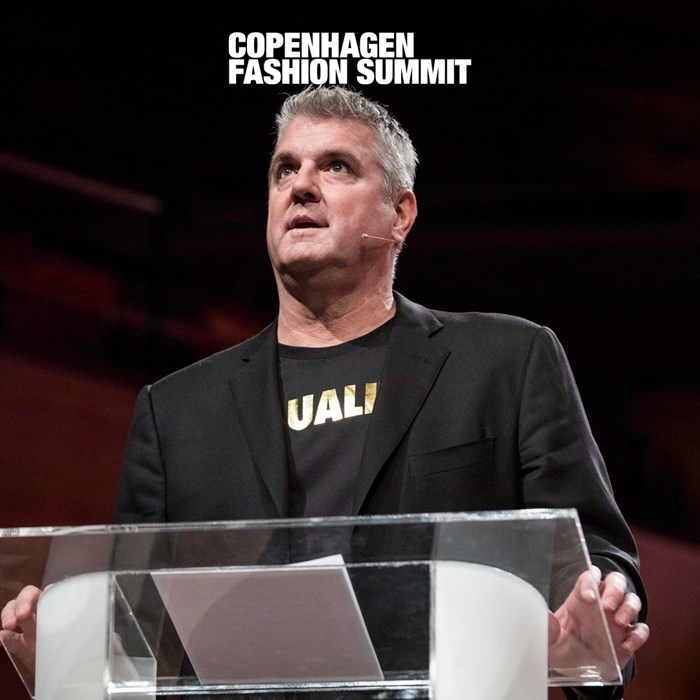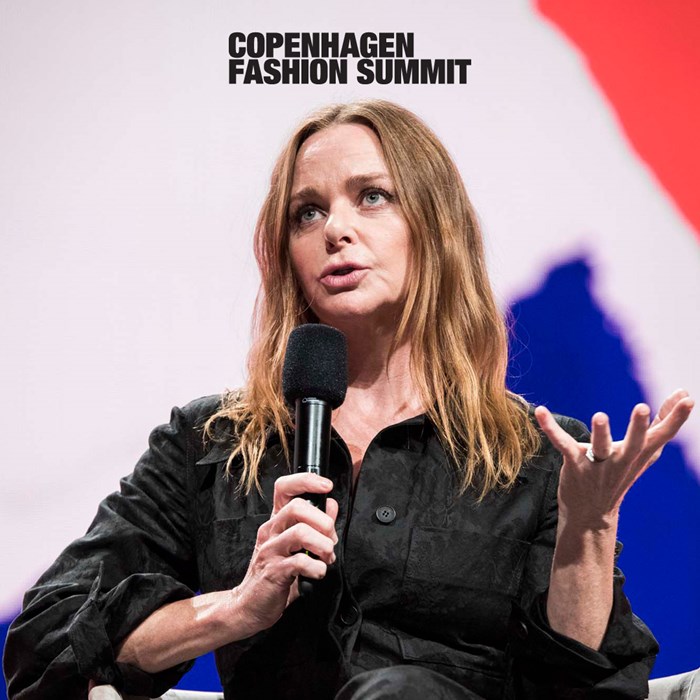Copenhagen Fashion Summit
2018-05-24Did you know that the oil industry is the number one environmental problem today and that the fashion industry is number two? Due to regulations and innovations in the oil industry, the fashion industry will probably bypass it and become number one in due time.
We are passing, or are about to pass, some important tipping points that matters and that cannot be reversible. Like the Great Barrier Reef that is slowly dying and the situation calls for urgency.

Queen Mary of Denmark
The Copenhagen Fashion Summit is directed directly towards the traditional fashion business, thus clothes and shoes, but I think that eyewear, often being owned by the biggest fashion companies, should be included here. Both Nike, Kering, and H&M were on stage, talking about environmental goals and what they have been working on in the past years to try to minimize the damage their business impose on the environment. But everyone who was there, big companies as well as small, called for regulations. No one wants to be the number one and pay for the investments needed for research and changes in the supply chain. The fashion business needs to be regulated in order to become sustainable in the next 10-20 years.

Eric Sprunk, COO NIKE
What was said at the fashion business is that we need more transparency when it comes to the supply chain, we need to cooperate more and the giants in the industry have to both take more initiatives to become sustainable and more innovative to share their methods and findings.

Stella Mc Cartney, Founder of Stella Mc Cartney
At OPO today, we have full control over our suppliers. Being a rather small company in this business we don’t have our own factories but we do have our own people present and in contact with the different factories we work with. From the beginning, it was to ensure the high quality of the products as well as to be sure to get our deliveries on time. Now we can also ensure that the factories are safe to work in, that the workers have regulated working conditions and that the factories follow the regulations of the country they are present in when it comes to environmental issues. In China, for example, the government has promised to reach the environmental goals set by the UN in 2015 and they are about to make it. By regulations and innovative thinking. The factories we have chosen have all signed the REACH contract. A regulation that regulates the use of chemicals according to EU standards.
Some years ago we redesigned the cases we have to all our frames. The original metal plate was exchanged for one in pressed paper and they were made foldable. Less weight and spaceless freight.
We will continue working with our own sustainability and will try to improve whatever there is to improve in terms of less freights by air, less packaging, continue to use sustainable acetates and also keep a good eye on the CSR.
And, we will keep on communicating our progress with you!